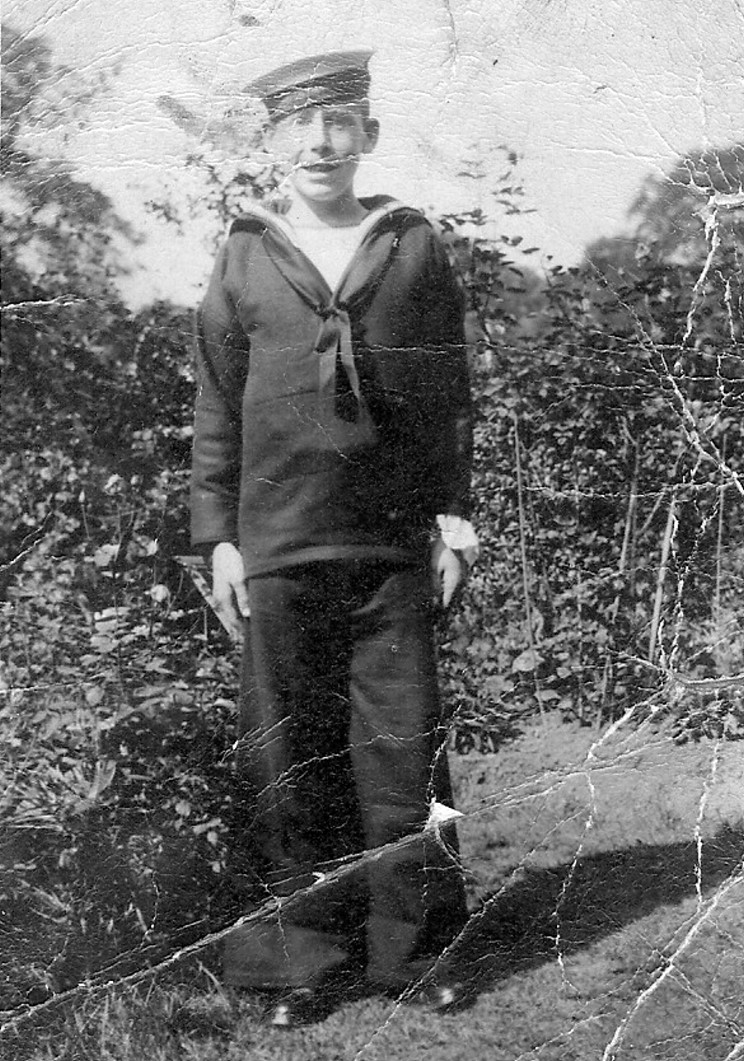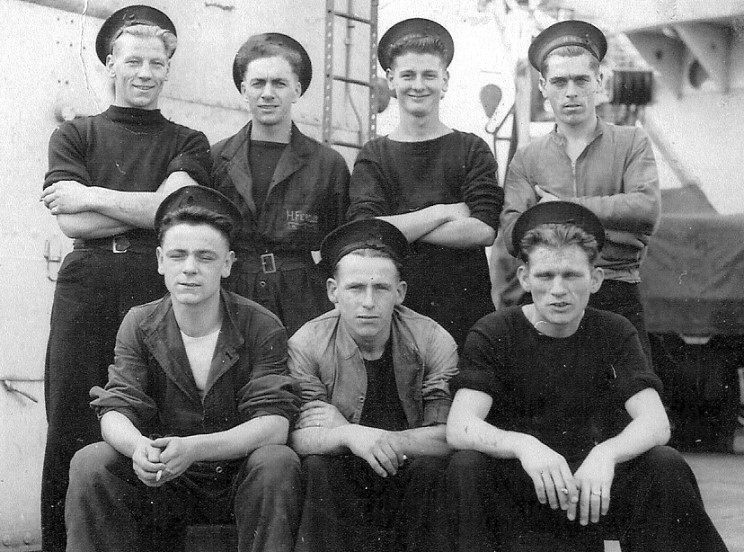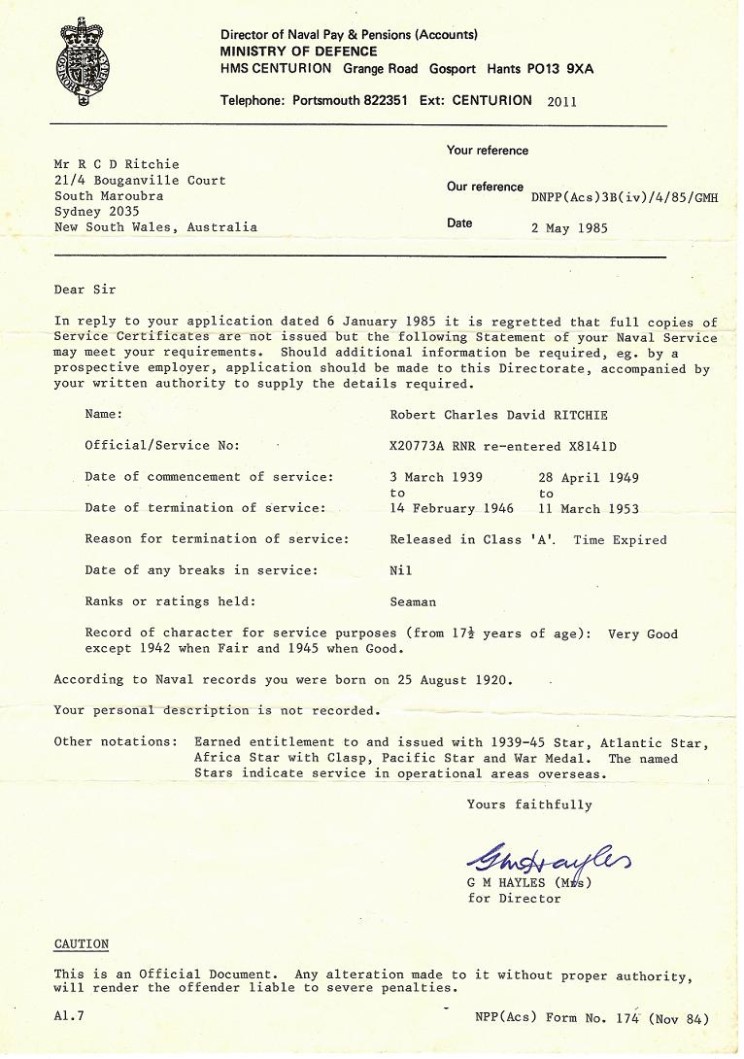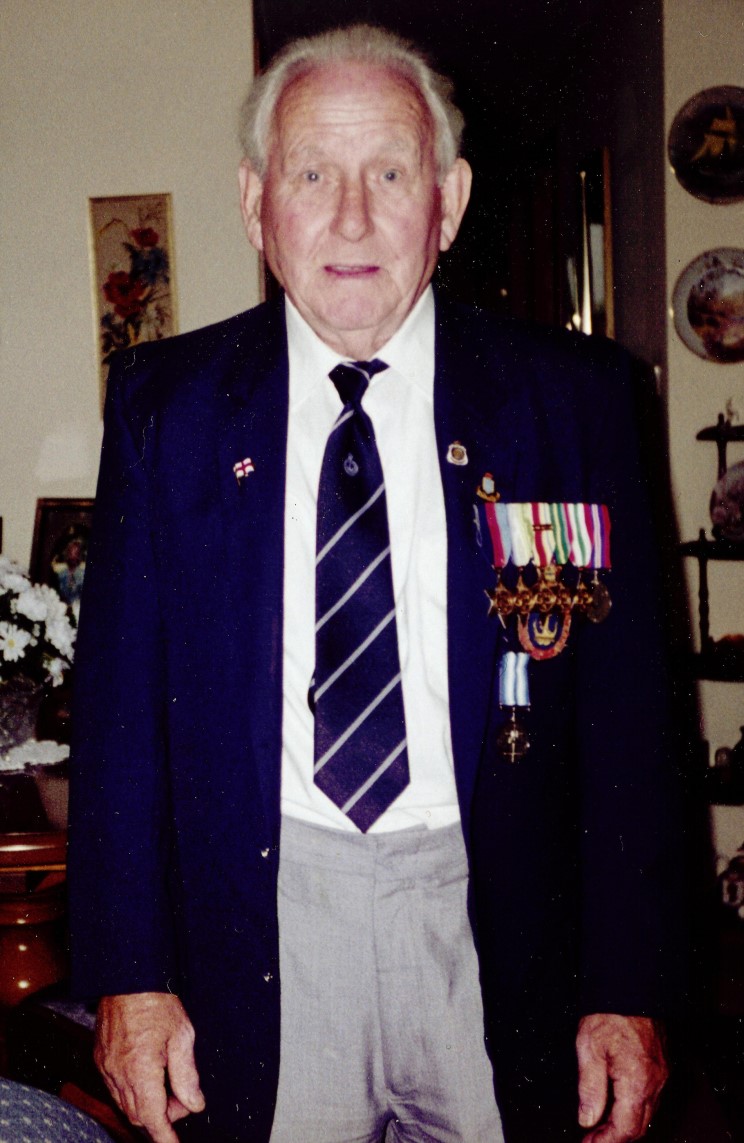My name is Ritchie Brammer, eldest grandson of Robert Ritchie (DOB 25/8/1920). Recently I have been tracking down the war service records of my grandfather Robert Ritchie & ships that he served on during the course of World War 2. As his eldest grandson, I felt that it is my duty to my family that I try to record his War service as accurately as possible for future generations. I have a number of articles & paperwork from his service & now I am placing them all together for the family to view, understand his circumstances & the part he did for his country during its time of need.
My grandfather during the early period of the 1930's along with his sister were left orphaned as children. He had been raised in Barnardo's institutions. In his mid-teens, Robert Ritchie "joined" the Royal Navy Cadets. I haven't got any information about this period, but it is well known that boys in their mid-teens were inducted into the Royal Navy. The information that I have stems from a Board of Trade (BOT) book listing his conduct on ships he served on in the late 1930's. This is the part where it gets very interesting.
On board the SS Ashlea, Robert Ritchie served as a gunner on this vessel. From verbal information obtained & bits of written information, that a few merchant ships prior to the outbreak of war were armed to provide some sort of last ditch defence before their ships were sunk by the enemy. The weapons they were given would have extremely inadequate for the task. The crews manning these weapons were young men from the Royal Navy & not merchant navy. The Royal Navy personnel that served on these ships were given different paperwork to identify themselves as Merchant Seamen (see BOT image provided).
Robert Ritchie's Royal Navy record states that he "joined" in March 1938 after serving in the Royal Navy Cadets (see letter service image provided). In Robert Jackson & Willi Frischauer's book "The Navy's Here! The Altmark Affair" It is stated that my grandfather's position on the SS Ashlea is Cabin Boy (He is mentioned in the book in 1 sentence saying "That's grim!" to fellow POW's). The captains of the vessels serving in the merchant navy knew that if there were any Royal Navy crew serving on their ships, there would have been a good chance that executions would have taken place if found in uniform. Therefore my grandfather's uniform would have been destroyed before the crew of the Admiral Graf Spee came on board & he was relegated to the status of "Cabin Boy" to protect him as he was only 19 at the time of being captured & also short in stature. He has tried on a few occasions to correct the authors of the book but without success.
My grandfathers service with the Royal Navy with the information that I do have, he was extremely busy during the war years. He helped with the evacuation of Allied troops at Dunkirk, did escort duty on the Atlantic, Russian & Mediterranean convoys, He underwent operations with the invasion of North Africa, Sicily & Italy. After a stint with the British Home Fleet he was the transferred to the British Pacific Fleet serving onboard the HMS Implacable. Funny enough with him serving on the Implacable, he was under the command of Vice-Admiral Phillip Vian who at the time of the Altmark incident was Captain of HMS Cossack.
He did not return to Britain until February 1946 & then went into reserve until April 1949 when he went back into active service & went for the duration of the Korean War. He retired from the Royal Navy soon after the conflict. Over the years I have listened to his stories of his time in service with the Royal Navy. There are quite a lot he explained to us over time & we were amazed that he came out in one piece.
He was a very active man after his service and came out to Australia in 1969 to finally settle with his family. He worked on a number of state government projects (Sydney Opera House being one of them) with various authorities until his retirement. On January 2003 he was diagnosed with asbestosis in his lungs. This was due to the time he served in the Royal Navy where ships were constructed using this material to suppress fire. In his last words he said "The Germans, Italians & Japanese couldn't kill me, but the Royal Navy did!". He passed away at Manning Base Hospital in Taree 29/6/2003.
-Ritchie Brammer 2008
|



